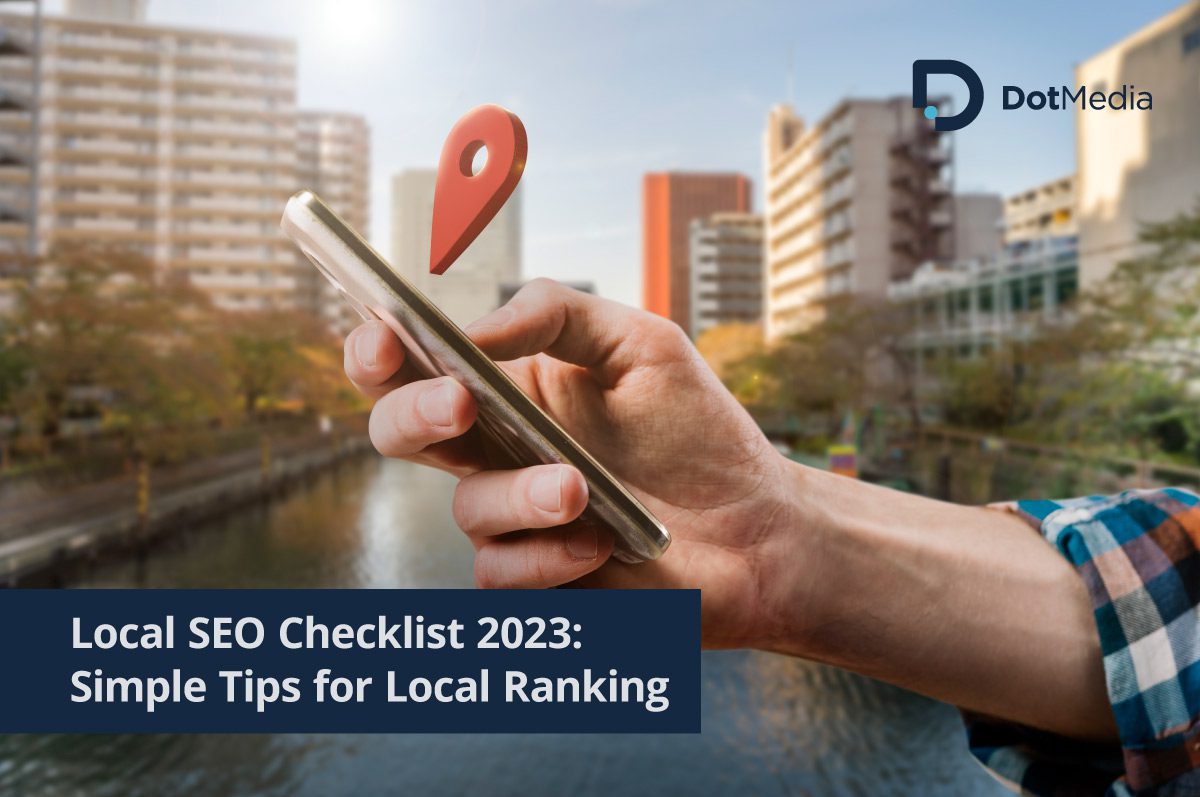Breaking Down The Basics Of SEO: Guide to SEO
SEO is an ever-changing method of tuning a website to be more visible and useful to users.
While users are the primary target audience, all websites must adhere to a few specifications given by search engines if they want to get seen by users at all.
Search engines use an algorithm to display the most relevant results to their users. For reasons we’ll get to, search engines like to keep their algorithms private. SEO is, simply put, the effort of trying to make a website fit well into that algorithm.
We’ll cover the basics of SEO in this article, hopefully giving you a better idea of what it is and how to use it to get more Organic traffic to your website But first, what does SEO stand for?
What Does SEO Stand For?
SEO stands for “search engine optimization.” The general idea of what it is is pretty well contained in the name. Search engine optimisation optimises websites to do fit the preferences of search engine algorithms.
To really understand SEO, though, you have to have a little knowledge of how search engines work and the overall SEO definition.

Understanding Search Engines
In the early days of Google, sites actually had to apply to get indexed and be visible to users. That was a time when there were vastly fewer sites online, and Google didn’t have the technology needed to index the volume it does now.
As things progressed, though, Google had a vested interest in keeping up with the scope of the web to provide a valuable service for its users. While it’s estimated that only around .04 per cent of the internet is indexed by Google, they’ve still managed to index over 30 trillion web pages.
How do they do it?
Crawlers and Indexing
The best way to describe how Google keeps up with websites is through an analogy. Imagine that the internet is a physical place and the gates to different rooms and places are the links to and from websites.
There are things called “crawlers” that move to and from those gates, only being able to move to rooms that are directly connected by links. Every time a crawler enters a room, it takes down inventory of all of the stuff within it and the quality of that stuff.
That’s essentially how it works. Crawlers, sometimes called spiders, are the bots that Google sends out to the internet to document information, moving through links. The information that bots takedown is part and parcel to the search engine algorithm.

Working With the Algorithm
It should be noted that the “search engine algorithm” isn’t something that most of the public really understands. While SEO consultant ‘s and professionals work hard to try and optimise sites, not a single one of them has a cheat sheet on how the algorithm works.
It’s in Google’s best interest to keep that information secret. Why? If you think about a search engine from the developer’s point of view, it makes a lot of sense.
There’s some competition among search engines. While most of the web traffic goes to Google, all search engines still have it in their best interest to provide a service that is superior to their competition. In this case, the search engines’ service is providing search results that are most relevant and useful.
An algorithm is used to sift through the 30 trillion-plus websites online, pick a few thousand, organise them in order of relevance to the keyword search, and display them to the user. The way that search engines make their decisions is, on some estimates, based on over 200 factors.
That being said, algorithms aren’t impossible to understand. There are ways to “cheat the system,” and the search engines don’t want you to understand those ways. So, SEO professionals are left searching for the buried treasure of search engine optimisation.
In other words, trying to figure out how sites can rank highly in searches. While we don’t know everything about optimisation, we know the most important bits. We’ll cover those next.

What We Know About SEO
There are four or five elements of search engine optimisation that we understand to be the most important factors when it comes to ranking. Those are keyword optimisation, linking, site architecture, and quality content.
SEO marketing services through search engines and social media also plays a large role, but that’s a topic for another day. Let’s start with keywords.
Keyword Optimisation and Relevant Keywords
It makes sense that keywords should be the most important element of SEO. The entire search process begins with a keyword. People want to know how long a squirrel’s lifespan is, so they search “how long do squirrels live?”
That phrase is what’s known as a “long tail keyword.” Keywords and phrases are the most explicit way for a search engine to know what you’re looking for and what will be most relevant. It’s like the strainer with the largest holes, the one that isolates the largest chunks of gold.
Keywords extend far beyond the immediate search as well. A lot of research is done on keyword trends in specific niches. The theory is, follow what people are searching and create content to match it.
It’s impossible to know what people will want to search in the future, but if a big enough group is searching for a specific keyword, it’s likely that it will be popular for a while. That’s why many sites create content strictly based off of keyword popularity within their niche.
The idea is to place keywords into your web copy or blog posts, making it clear that the page is about or related to the keyword. The trick is, and we’ll talk more about this when we go over quality content, you can’t saturate your posts with keywords.
Think Back to Google’s Perspective
Google has safeguards against copy that panders to the algorithm. People have tried everything from lacing the page with invisible keywords to creating poor content that is blasted with unnatural keyword usage. Those pages aren’t going to be much help to the user.
While it’s uncertain how, it’s clear that search engines have a means of sifting out the sites that aren’t going to be useful. The best way to avoid being discarded is to create useful content that uses keywords naturally.

Why Linking Matters
If ranking in search engines were a democratic process, links would be the votes. Similarly to a lot of democratic systems, not all votes are counted equally. Some voters have more pull than others.
Search engines see sites with links as ones that are relevant to the online community, so they’re more likely to be relevant to users. Links to other sites in the relevant niche are more valuable than links to sites with no connection to the content.
You wouldn’t want to link to a toilet website if you were selling diamonds, for example. In the same vein, sites that are vastly popular will hold more weight in terms of ranking. So, a link from The New York Times is more valuable than a link from your local newspaper.
Similarly to keyword optimisation, you can’t cheat the system by blasting your site with hundreds of outbound links to popular sites. The outbound links you insert should be relevant and organically placed. Outbound links aren’t the most valuable, though, it’s inbound links that really boost your ranking.
The Importance of Inbound Links and internal linking
While healthy outbound linking (linking to sites from your own) does show that you’re nestled in your niche’s network, it doesn’t say much about what other sites might think about you. Inbound links (links to your site from others), however, tell the algorithm that your content is relevant enough for other content creators to reference it.
Cultivating a healthy number of inbound links can be difficult, though. It’s similar to the employment dilemma wherein a person needs the experience to get a job, but they need a job for experience. Without much online traffic, you aren’t likely to be linked to by other sites but you need to be linked to in order to garner online traffic.
You can respond to this issue in a couple of ways. First, you could go out and essentially “cold call” other sites for links. Offering to write a blog post for their site in exchange for a chance to link back to your own is an extremely common method.
This is called guest posting, and it’s a viable way to network and beef up your site’s SEO. The alternative to guest posting is hiring a service to guest post for you or pay for inbound links. There are easy ways to have these services performed, and there’s no shame in paying for a little credibility in this case.

Site Architecture
Good site architecture is more rooted in web design than it is SEO, but it has a big effect on your rankings nonetheless. Site architecture refers to the arrangement of your site and how easy it is for users to navigate it.
When Google crawls your site, it will take note of the arrangement of links and pages, making a judgment on how well it’s organised. In general, if a crawler can make it through your site systematically, you’re better off.
The best overarching tip to give about site architecture is that you should make your content hierarchical. In other words, start with general ideas and pages, breaking down your pages into smaller ones that relate to the original idea. This arrangement makes it easier for users to navigate.
If your content is scattered, lacking any logical organisation, users will have a hard time finding what they need and you will have a hard time ranking in search engines.

Quality Content for an SEO Strategy
Whether it’s SEO for small businesses or multinationals, another large tenet of content marketing and SEO is the presence of good relevant content. This is essential for a number of reasons. First, the search engine rewards useful content. It follows that you will do well eventually if you have a foundation of thoughtful content that meets user needs.
Second, search engines can snuff out bad content quickly. You will have a harder time being linked to if your content isn’t great, and that will be followed up by a lack of organic search results. People are going to come back to a site that is genuinely good.
You should also post content regularly. You don’t need all of your posts to be about the exact product that you sell, in fact, it’s unwise to do so.
Keystone Pieces and Arrangement
If you have multiple pages that are optimised for the same keyword, Google won’t know which page to rank for. In that sense, you’re competing against yourself.
Writing numerous articles on your product will eventually lead to a conflict of ranking among your pages. Your best bet is to write a few central pieces about your business, writing the following posts on topics that you take from your keyword research.
Those central pieces are called keystone pieces. They should be those general ideas we referenced in the site architecture section. Make these living documents that are updated regularly.
Additionally, your subsequent posts should link back to your keystone pieces as much as possible. This gives those keystone pieces a lot of weight when it comes to rankings, and they can then serve as vessels outward toward your other posts.
If you organise your posts hierarchically, it should follow that all of your posts serve to feed traffic back up the system to your keystone pieces. Those keystone pieces are the heavy hitters and should lead users to make purchases, generate brand awareness, or do whatever you need them to do.
SEO and Keyword Research Tools
Here are some of the top SEO tools available to help increase Organic search traffic:
- Ahrefs: Ahrefs is a comprehensive SEO tool that provides you with a wealth of data on your site’s backlinks, keywords, and competitors. You can use this information to improve your site’s content, identify new link building opportunities, and monitor your competition’s SEO strategies.
- SEMrush: SEMrush is another powerful SEO tool that provides keyword research, competitor analysis, and site auditing features. You can use SEMrush to identify new keywords to target, analyse your competitors’ backlinks and traffic, and monitor your site’s overall SEO health.
- Google Analytics: Google Analytics is a free tool that provides you with insights into your site’s traffic, engagement, and conversion rates. You can use this data to identify areas of your site that need improvement, track the success of your SEO efforts, and make data-driven decisions about your content and marketing strategies.
- Moz: Moz is an all-in-one SEO tool that provides keyword research, site auditing, and link building features. You can use Moz to track your site’s rankings, identify new keywords to target, and monitor your backlink profile.
- RankMath: RankMath is a WordPress plugin that helps you optimise your site’s content for SEO. It provides suggestions for optimising your page titles, meta descriptions, and content for your target keywords. It also includes a built-in content analysis tool that helps you identify areas for improvement.
While these are just a few of the top SEO experts tools available, they can all help you improve your site’s SEO and stay ahead of the competition. However, it’s important to remember that simply using these tools won’t guarantee success. You still need to create high-quality content, build a strong backlink profile, and engage with your audience to improve your site’s SEO over time.
In addition, it’s important to avoid plagiarism when optimising your site’s content. Plagiarism can harm your site’s SEO by reducing the quality of your content and damaging your reputation with search engines. Instead, focus on creating original, high-quality content that provides value to your audience and incorporates your target keywords in a natural, organic way.
In conclusion, SEO tools can be a valuable asset for improving your site’s SEO and staying ahead of the competition. By using these tools and creating original, high-quality content, you can improve your site’s rankings and drive more traffic to your site. Just be sure to avoid plagiarism and stay up-to-date with the latest SEO trends and best practices to ensure your success in the long run.

Need Help With it All?
So, what does SEO stand for? Quite a bit. In fact, there’s a lot more to it than we covered in this basics of SEO article.
While having a good understanding of search engines and why SEO can benefit your site greatly, there’s really no substitute for the professionals. If you’re looking to seriously boost your ability to rank in search engines and develop a SEO marketing strategy, going with a professional may be the best bet.
So, we hope that answers your question What Does SEO Stand For? If you’re interested in learning more about how to improve your site’s rankings, we have the information you need.





